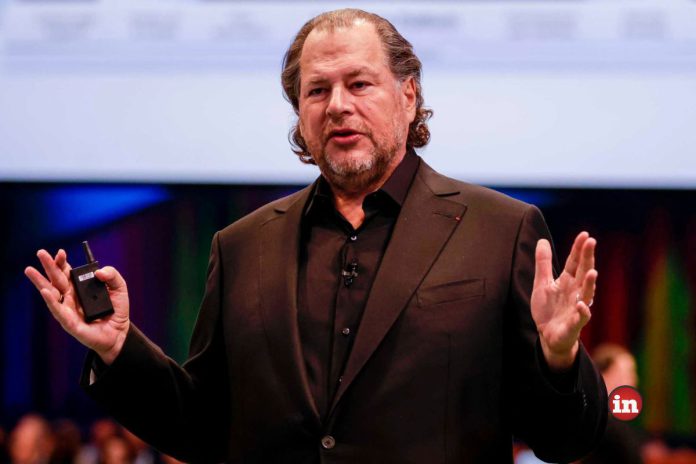It’s not every day that a CEO describes laying off 4,000 employees as one of the most exciting developments at his company. Yet that is exactly what Marc Benioff, cofounder and CEO of Salesforce, did in a recent interview. In the same breath that he confirmed the company had cut nearly half of its customer support staff, he hailed the rise of artificial intelligence agents as the most transformative and thrilling shift Salesforce has seen in the last three quarters.
The juxtaposition struck a jarring note. For the 4,000 employees who lost their livelihoods, the excitement of technological progress will feel cold comfort. For Benioff, however, the embrace of AI agents is a strategic pivot he argues will carry Salesforce into its next chapter as a leader in cloud-based enterprise solutions.
The rationale behind the cuts
On The Logan Bartlett Show, Benioff explained that AI agents now handle about half of all customer interactions at Salesforce. These digital counterparts, deployed through the company’s “Agentforce” product, can break down tasks into smaller steps, triage customer queries, and even chase down leads that had gone unanswered for decades. According to him, Salesforce has managed to clear a backlog of over 100 million uncontacted leads — a staggering figure that underscored both the limitations of the old system and the efficiency of the new.
“Because of the benefits and efficiencies of Agentforce, we’ve seen the number of support cases we handle decline,” a Salesforce spokesperson elaborated, adding that some affected staff had been redeployed into professional services, sales, and customer success. Still, the core fact remains: the support team has been cut from 9,000 to about 5,000.
The human–AI balance
Benioff insists this is not a story of wholesale replacement. He has drawn comparisons with autonomous driving: AI handles routine conversations until it hits an edge case, at which point a human steps in. Salesforce has even introduced an “omnichannel supervisor” to direct the handoff between humans and machines. In his telling, this is a hybrid, symbiotic model — not a zero-sum one.
But the reality is stark. Just two months ago, Benioff told Fortune that “the humans are not going away.” He dismissed fears of mass unemployment, arguing that AI’s limitations in accuracy meant there would always be a need for a “human in the loop.” The speed of Salesforce’s shift since then highlights both how rapidly the technology is maturing and how quickly corporate strategy can pivot when cost and efficiency gains are at stake.
A broader industry signal
Salesforce is hardly alone in this recalibration. Across Silicon Valley and beyond, “agentic AI” — programs that not only respond but proactively manage workflows — is being touted as the next frontier. Nvidia’s Jensen Huang has said AI agents will ultimately drive new jobs rather than destroy them. Microsoft executives have hinted that AI will flatten management layers and reshape organizations entirely. The question is not whether AI will redefine work, but how.
Salesforce’s decision sends an unmistakable signal: even companies that once framed AI as a human-augmenting tool are now finding that it directly reduces headcount. For rivals and partners in the enterprise software ecosystem, this is both a competitive wake-up call and a cautionary tale.
The reputational challenge
Benioff has long cultivated a reputation as a visionary leader with a conscience — outspoken on issues ranging from social justice to stakeholder capitalism. That is why his remarks about the pivot to AI and the subsequent layoffs being “the most exciting thing” Salesforce has experienced in nine months have landed with such unease. They highlight the tension between the language of human-centered leadership and the hard calculus of efficiency-driven strategy.
Also read: Accenture CEO Julie Sweet Maintains the Human Touch in the Age of AI
For employees, the message risks sounding callous. For investors, however, it may be reassuring: Salesforce is signaling discipline, efficiency, and a bold embrace of technology that could protect its margins and sharpen its competitiveness in a crowded cloud landscape.
Looking ahead
The deeper question is what this pivot means for the future of work. If AI can already replace half of Salesforce’s customer support roles, what happens when it becomes more accurate, more empathetic, and more capable of managing nuance? And what happens to the promise of stakeholder capitalism if the primary stakeholders, i.e. employees, feel expendable in the face of automation?
For Benioff, the answer seems clear: the hybrid future of human–AI collaboration is “the next generation of the enterprise.” Yet for thousands of former Salesforce employees, the promise of that future has come at a steep personal cost.
The paradox at the heart of this story is that technological progress often produces winners and losers in equal measure. Salesforce’s embrace of AI may indeed mark one of the most transformative periods in its history. But whether that transformation will be remembered as inspiring innovation or as a turning point in the erosion of human-centered corporate culture depends on what comes next.


